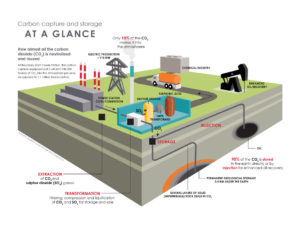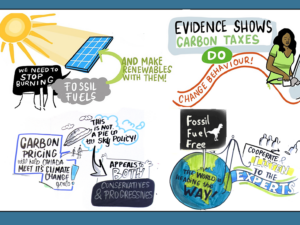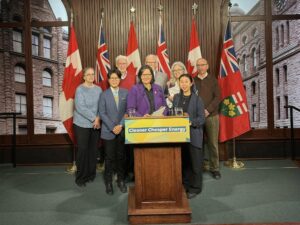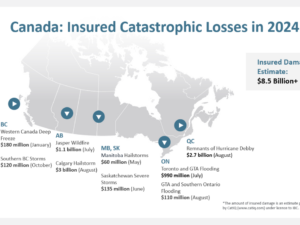By Joseph Robertson and Cathy Orlando FOR IMMEDIATE RELEASE: June 20, 2022 One train of thought pronounced by populist pundits to deal with the affordability crisis is a federal gas tax holiday. Gas taxes are very efficient at converting road usage into funding for related infrastructure. Cutting federal gas taxes will have almost zero impact on oil market prices and very little impact on prices at the pump because the federal gas taxes are so low. They will, however, allow oil and gas companies to keep prices high while capturing more of the revenue. Underfunded and degraded infrastructure will, however, impose costs on those who can least afford them. Canada’s price on carbon pollution is highly efficient and results in progressive outcomes for most taxpayers. The fact is most Canadians living in the provinces with the federal carbon pollution fee (Ontario, Manitoba, Saskatchewan, and Alberta) come out ahead. The policy is positioning Canada to be a leader in the emerging climate-resilient economy of this century. Weakening pollution pricing to deal with short-term price spikes would transfer income and opportunity from households back to the fossil fuel companies and will degrade Canada’s future prospects. Secretary Yellen was the Former Chair of the US Federal Reserve. She is one of the signatories, alongside 28 Nobel Prize winners, 14 Former Chairs of the Council of Economic Advisers, and 3623 economists in the USA that have signed onto the US Economists Statement on Carbon Dividends. The Carbon Dividends policy is pretty close to Canada’s national carbon pricing policy. The US and Canada can, and should, be allies in speeding the transition away from pollution to cleaner, healthier, more sustainable economies. The latest IPCC Reports concluded it is now or never. Public money cannot finance the low-carbon transition by itself. The money that is needed is in the trillions of dollars. Last year, 450 major financial institutions committed to aligning the $130 trillion they manage to science-based net-zero targets in the Glasgow Finance Alliance for Net-Zero. Governments must use policy instruments to successfully mobilize private sector financing at that scale. At the same time, governments must address the affordability crisis. Being that they are both women, we doubt it is lost on them that there is still a significant income gap between men and women and also that women, in general, do not consume as much fossil fuels as men on average. Lastly, the data is abundantly clear that the top 10 percent of earners in the USA, Canada, and around the world, consume far more fossil fuels than average. Thus, cutting carbon taxes and gas taxes across the board will benefit the richest the most. The Emergency Fuel and Food Benefit will see low-income individuals receive $225 and low-income families, including seniors, receive $450. There’s no reason why the governments can’t redirect the billions of fossil fuels subsidies from oil and gas companies to help Canadians with their cost of living instead. — Joe Robertson is the Executive Director of Citizens’ Climate International (CCI). He lives in Minneapolis MN. Cathy Orlando works as the Program Director at CCI and National Director of Citizens’ Climate Lobby (CCL) Canada. Cathy Orlando lives in Sudbury ON. CCI is a sister group to CCL. CCL has operated since 2007 in the USA and 2010 in Canada. CCI is organized in 76 countries with almost 20,000 supporters outside the US and 152 active chapters in 52 countries. CCL and CCI have civil society status at the G7, the G20, the World Bank, and observer status at UNFCCC COP meetings. The organization is a founding strategic partner of the Carbon Pricing Leadership Coalition, which brings together leaders from the public sector, the private sector, and civil society to investigate and promote carbon pricing.OPINION: Global Climate Group Responds to Secretary Yellen’s Visit to Canada
Media Contact: Cathy Orlando, 705 929 4043 cathy@citizensclimate.org
Sudbury ON and Minneapolis MN: On June 20, 2022, Secretary Janet Yellen made her first official visit as US Treasury Secretary and met with Canadian Finance Minister Chrystia Freeland in Toronto. They discussed the war in Ukraine and joint efforts to deal with the food and fuel price inflation it is causing.
Yellen and Freeland are both astute economists. Thus, no doubt they know much of the heavy-lifting that will efficiently decarbonize our economies will come not from the taxpayers’ pockets but from long-term predictable carbon pricing policies that allow the whole economy to demand and drive change.
To deal with the affordability crisis, we can look to New Brunswick, where the Higgs government distributed a one-time payment to low-income New Brunswickers to help them deal with soaring gasoline and grocery bills.
For more information visit:
citizensclimate.earth
canada.citizensclimatelobby.org
##############
OPINION: Global Climate Group Responds to Secretary Yellen’s Visit to Canada
Home » CCL Canada News » OPINION: Global Climate Group Responds to Secretary Yellen’s Visit to Canada
OPINION: Global Climate Group Responds to Secretary Yellen’s Visit to Canada
Posted on June 20, 2022 in Opinion












